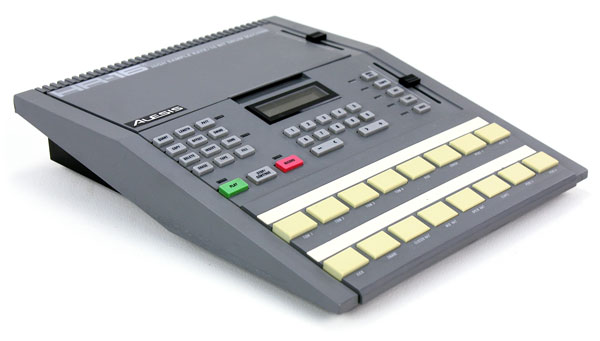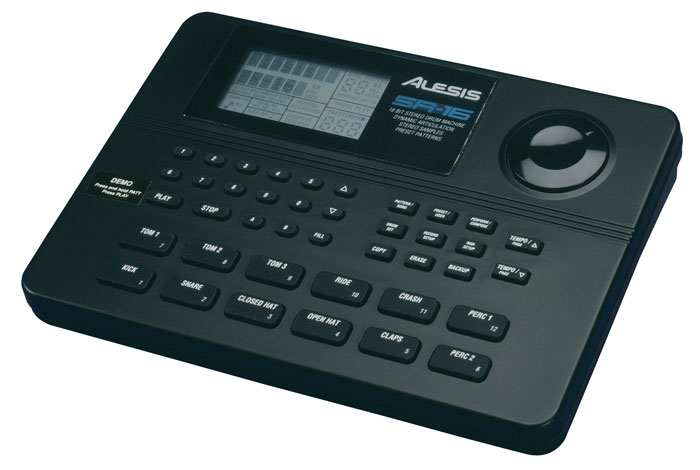In Praise of the Alesis SR-16
I was somewhat surprised recently to see that some people on the group-buying site Massdrop were attempting to get a group together for the Alesis SR-16 drum machine. At its regular street price, the SR-16 is at the same price point as a lot of other newer, more fashionable machines. The Volca Beats is an insanely fun, great-sounding, compact true analog 808 clone for the same coin. Boss continues to make good drum machines for the same or not much more.
And recently I've been in multiple conversations about how the Alesis brand is mostly garbage. This is a shame, at least for the sake of a few great machines — The Micron/Ion keyboards are among the best synths to come out of the now-passé virtual analog era — but most notably for the SR-16. It's somewhat hard to love, but it's also hard to deny.

Alesis produced the very first 16-bit sampling drum machine, the HR-16. Previous sample-based machines, like Oberheim's DMX and the Linn LM-1, were 8 or 12-bit. "HR" stood for high resolution and it really wasn't a pose. The samples were good, they had multiple velocity levels, and they were tunable. But there was, as with all machines of the time, a single kit worth of sounds to choose from. I use one, and I replaced the internal chips with Linn LM-1 sounds.

Fast forward to 1993, and the successor to the HR-16 didn't do much for innovation, but it added every feature you might want in a drum machine. There were velocity-dependent samples: if you hit a pad harder you'd hear a sample of a drummer hitting the drum harder, rather than just the same sample at higher volume. There were two drum "fills" for each pattern, so that switching between patterns was less robotic and more realistic. For live standalone users, there were two foot pedal inputs for changing patterns hands-free on stage. But if you wanted to use the unit as a sound module, the MIDI implementation was more complete than anything on the market. Godflesh upgraded their HR-16 to an SR-16, and I started playing fairly Godflesh-like music with one, recording my ideas to 4-track. It also powered my first industrial/experimental band for quite a while before finally giving up the ghost after about 10 years of beats (I still have it and I'm sure it could be made operational again). But as long as it lasted and as useful as it was, I'm surprised that it's still made. More power to it.